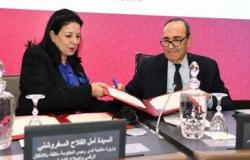Photo by Serge d’Ignazio
This geographical area which extends over the northern borders of Israel has been an open battlefield for two months, during the land invasion on September 23, 2024 under the name “Northern Arrows”, In the context of the intensification of war in the Gaza Strip which was triggered on October 7, 2023, and the amplified tensions between Iran and the Hebrew state, which considers Hezbollah as an armed arm of Iran to the region and its northern borders. Two antagonistic regional powers risk leading the entire Middle East region into a bloody war and a long-term chaotic situation, particularly with the latest direct military clashes between Tehran and Tel Aviv.
This agreement covers a 60-day ceasefire during which the rebellion movement must withdraw from the southern borders to the north of the “Litani” river in favor of the Lebanese army which is deployed there and the Israeli army. leaves Lebanese territory, an agreement under the supervision of the United States.
In fact, nearly 3,800 deaths according to figures from the Lebanese Ministry of Health since October 7, 2023, the majority since the end of September.
An insurmountable asymmetric challenge?
Asymmetry is the opposition of two adversaries with totally different and unbalanced means where the weak surprises the strong, it is generally considered as an effort by the weak in order to obtain a greater capacity to cause harm at lower cost, thus positioning himself as the equal of the powerful. Case of Israeli failure during the 2006 war against the Hezbollah rebellion movement also called the Lebanon War. A redefinition of the conflict, which in its modern version, asymmetric wars have changed the perception of the power of States. The nature of victory has also been changed. History repeats itself, a movement of a few thousand poorly armed soldiers, little technologically developed, but which carries a doctrine of an insurrectional movement with the objective of resistance, with its mobility, knowledge of the terrain, local support manages to maintain in place for the second time despite the assistance of its main leaders “Hassan Nasrallah” and “Hachem Safieddine” on October 27, 2024 by aerial bombardments on the southern suburbs of Bierut.
The Israeli army under the rules of guerrilla warfare faces a problem of fighter determination. For her, every civilian is a potential insurgent, which limits their capacity for action, the density of the people in the war zones has made the situation very complex without achieving the ultimate objectives of its military operation which is total destruction. of Hezbollah’s military infrastructure, the elimination of all these members and securing the northern border. creating human and material losses as well as criticism from the international community and the majority of member states of the United Nations while accusing Israel of violating international law and committing war crimes and crimes against humanity, in particular with the far-right government of “Benjamin Netanyahu” condemned for the same accusations by the international criminal court.
Serious consequences:
According to official figures from the United Nations international office in Geneva and Amnesty International, more than 3,300 people were killed during this conflict, including 203 children and 644 women who lost their lives. Forced displacement is a major issue causing a migration crisis in no more humanitarian crisis.
Nearly 880,000 people have been displaced within Lebanon, while more than 510,000 have fled to Syria, worsening an already critical regional humanitarian crisis.
There are significant concerns about compliance with international humanitarian law due to human rights violations and disproportionate strikes in densely populated areas.
Despite increasing calls for a ceasefire and the protection of civilians, the situation on the ground remains tragic, fueling a humanitarian crisis that could continue in the weeks to come.
Challenges of rebuilding Lebanon and maintaining lasting peace are now emerging for the international community, but what will be the capacity of this possibly obsolete system to pacify the region and ease geopolitical tensions?…
*****
Subscribe to our weekly newsletter – to receive all the links to access the articles published each week.
Every week, PTAG publishes new articles in its different sections (economy, environment, politics, social movements, international news, etc.). The weekly letter sends you by email the links which allow you to access these articles.
Fill out the form below and click on this button to subscribe to the PTAG newsletter:
Subscribe to the letter
Do you know the PAFI program? PAFI for financial assistance program for investment.





